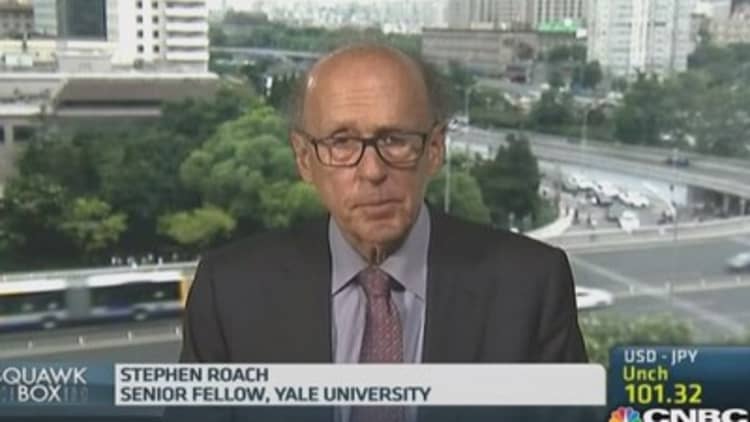
One of the biggest private equity investors in the banking sector has warned that regulation has depressed profitability so much that lenders will struggle to attract sufficient investors to survive the next financial crisis.
"All the stuff that has happened and all the rules we've introduced have depressed profitability and that is a real vulnerability," Christopher Flowers, the US private equity investor specialising in financial services, told the Financial Times in an interview. "Nobody is going to invest in an industry with returns of 5 per cent."
Mr Flowers, who has raised $15 billion to invest in financial services since setting up his JC Flowers buyout fund in 1998, also criticised the UK's recent division of banking oversight between the Bank of England's Prudential Regulation Authority and the Financial Conduct Authority.
"When you separate the conduct from the prudential regulatory apparatus, I'm not sure that is a great idea because you then get in a position where the people regulating the conduct have no prudential mandate and that gets you into riskier territory."
Read MoreLondon bank scandals aid 'fintech' dominance
The scale of bank fines imposed by watchdogs around the world, such as the almost $9bn fine paid by France's BNP Paribas for sanctions violations, has alarmed prudential regulators, who are focused on ensuring companies are financially sound. Andrew Bailey, head of the UK's PRA, said this month that banks' fines were making a "considerable dent" in their efforts to rebuild capital.
Flowers, who has invested in banks in the US, UK, Japan, Germany and the Netherlands, said it was impossible to turn banking into a risk-free utility, no matter how much capital regulators force the industry to hold. He asked: "How do you make something that lends money at risk a utility?"
"That you could design this so that there would never be another banking crisis again is a utopian idea. I guarantee that we will have another banking crisis."
Read MoreItaly banks ready for stress tests: Central banker
A study of the world's 200 biggest banks by the consultancy group EY has found that average return on equity – measured as net profits divided by shareholders' average equity – was 9.74 per cent last year, only slightly above their average cost of equity.
More from the FT:
Financial watchdog warns of more fines
The Monday Interview J Christopher Flowers
ECB imposes tight capital plans deadline
There was a big difference between European banks, which have suffered a fall in their average return on equity from 15.8 per cent before the crisis to only 4 per cent afterwards, and emerging market lenders, which have enjoyed relatively steady returns of about 18 per cent.
North American banks suffered a drop in their average return on equity from 16 per cent to 8 per cent during the crisis, but it has since rebounded to above 11 per cent.
Read MorePortugal's bank woes just got more complicated
"American banks have been able to restructure their balance sheets and cut costs quicker than their European rivals, which have been hit by the eurozone crisis and have much more poorly performing assets on their balance sheets," said Steven Lewis, lead global banking analyst at EY.
To achieve the typical bank management's target of 15 per cent return on equity, EY said the average bank would have to cut costs by 30 per cent or increase revenues by 15 per cent. It said European banks would have to cut costs by 65 per cent or increase revenues by 40 per cent.
European banks start reporting first-half results next week. US banks have reported second-quarter return on shareholders' equity ranging from 14 per cent at JPMorgan Chase to 0.2 per cent at Citigroup, which had its profits wiped out by a $7bn settlement for mis-selling mortgage securities.


